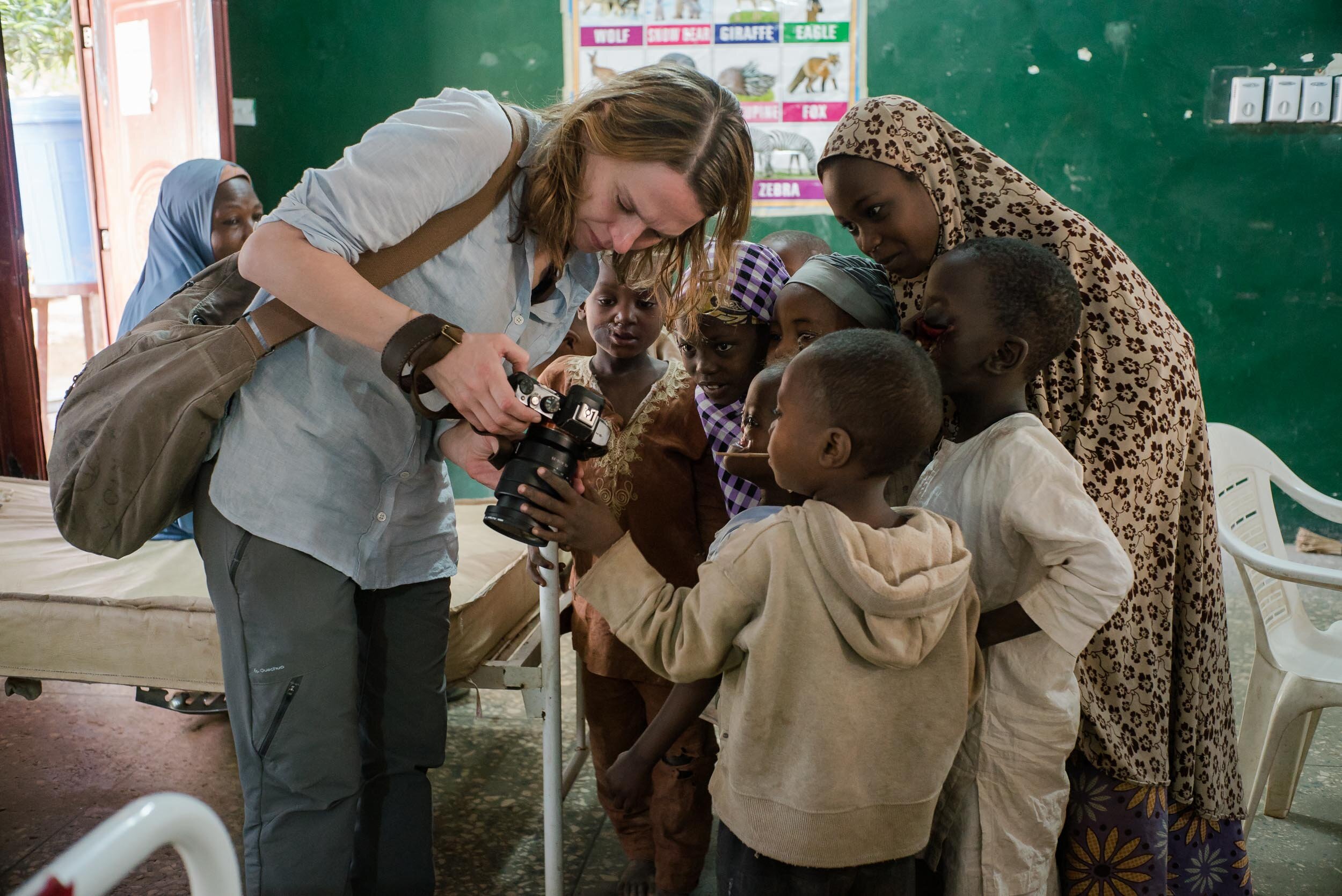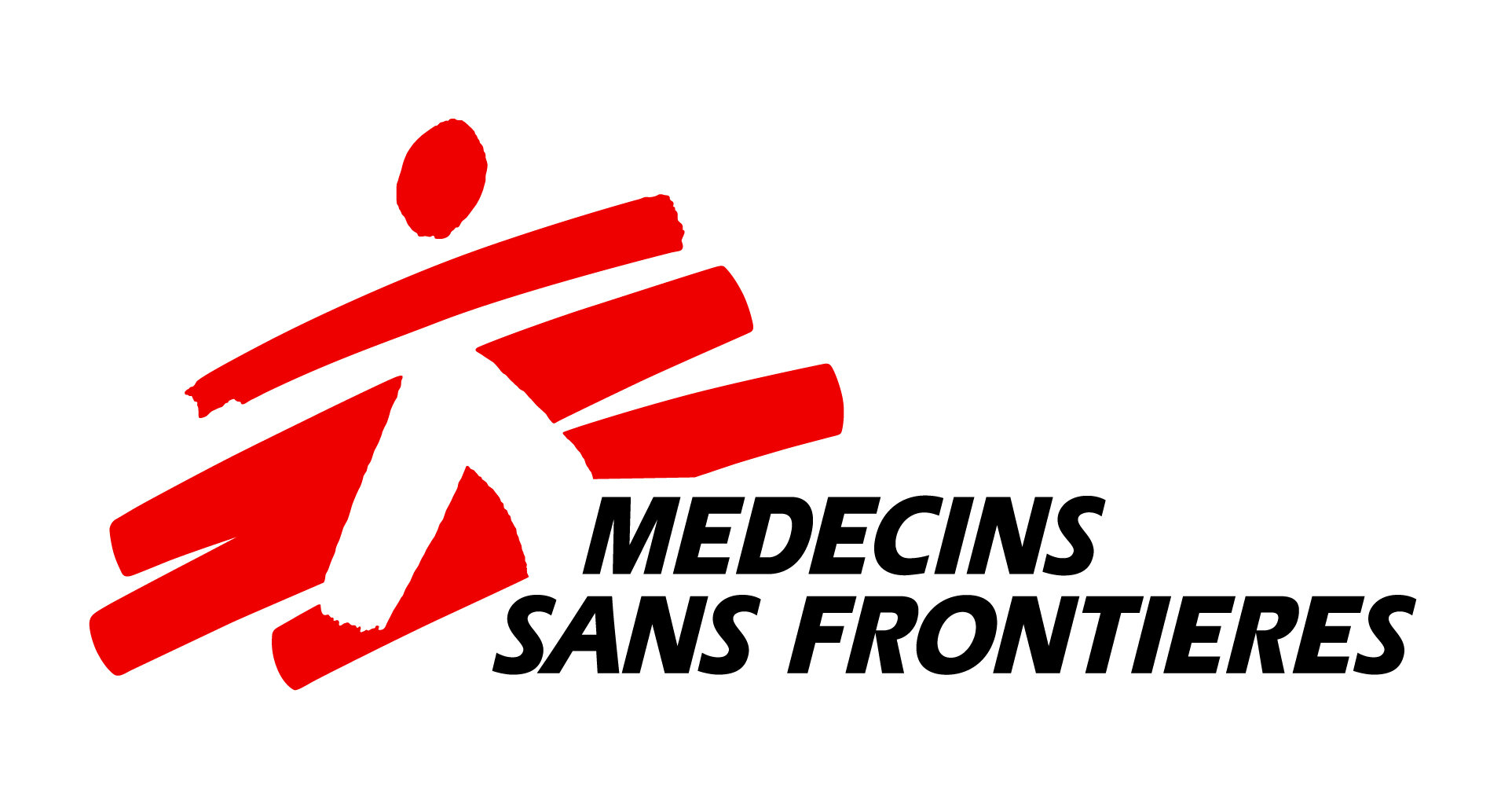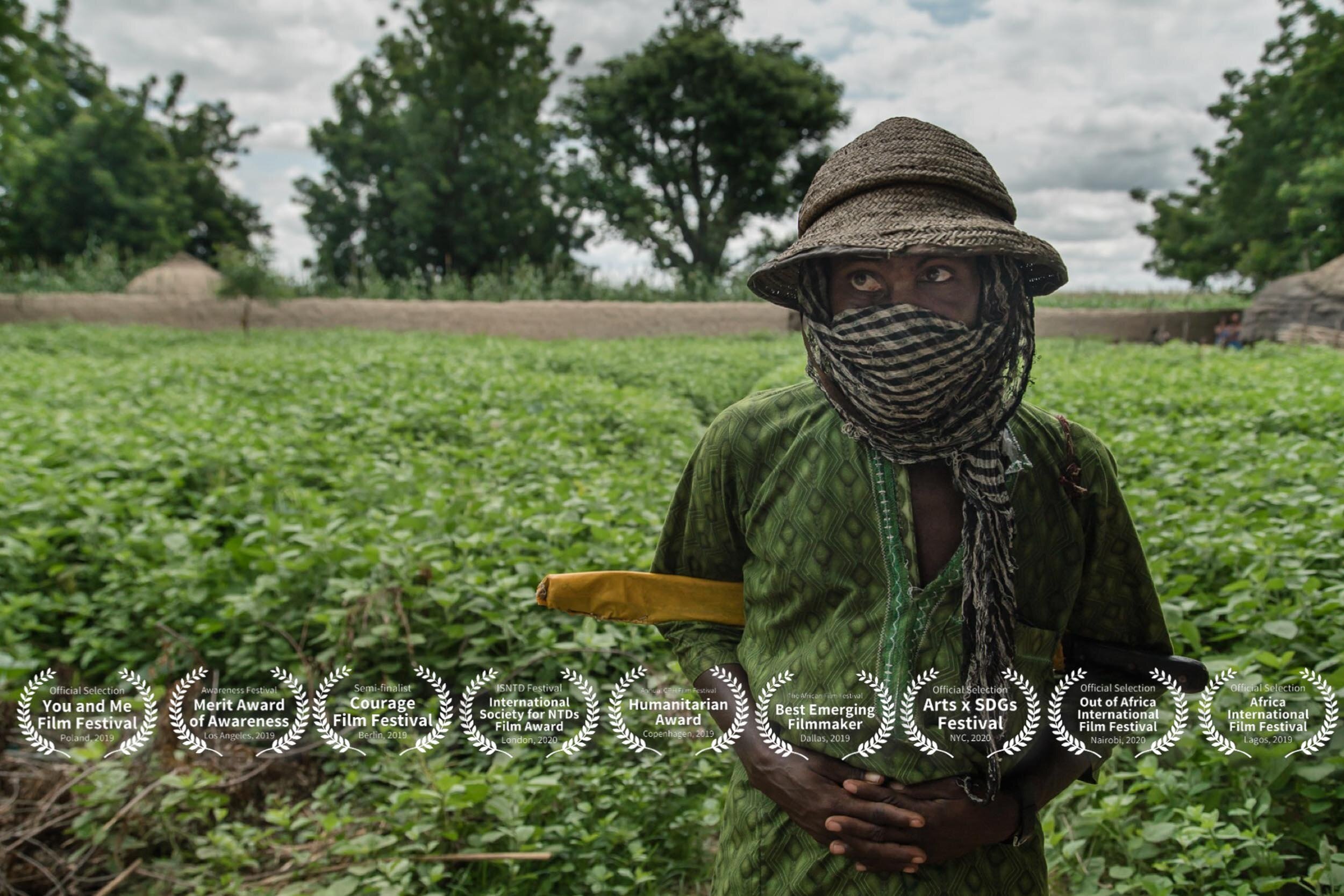
ABOUT THE DOCUMENTARY
Sakina is a little girl, Amina and Adamu are teenagers and Mulikat and Aliyu are adults who have lived for decades with the terrible physical and psychological consequences of noma. Coming from different regions of Nigeria, they have found in Sokoto, a city in the North-West, a unique hospital to heal their wounds. While they suffer from pain, discomfort and discrimination, they are also on a life-changing journey to overcome years of isolation.
Noma is a gangrenous infection starting in the mouth caused by extreme poverty, malnutrition and poor hygiene. In just two weeks, it destroys the tissues of the face and might kill up to 90 percent of the people affected. ‘Restoring Dignity’ offers a glimpse in survivors’ lives and follows their struggles and achievements over the course of a year.
The World Health Organization estimates noma affects 140,000 people every year. It can be prevented by improving general conditions of life and access to healthcare.
Runtime - 52 minutes
Original languages - Hausa, Pidgin English, English
Versions available - English, French, Arabic, Russian, Spanish, Korean, Chinese, German, Czech
Watch the documentary on Vimeo On Demand platform. By renting it, you are donating $1.20 to Médecins Sans Frontières (MSF) and the remaining credits will be used by Inediz to support the film promotion to raise awareness on noma.
DIRECTORS’ LETTER
Noma causes terrible consequences in a very short space of time, but the healing and reconstruction processes can take many months and years. This is an injustice all survivors and their dear ones experience. This dramatic distortion of the time struck us as soon as we arrived at the Sokoto Noma Hospital.
When you first see the face a noma survivor, it takes you some time to connect with the person. It’s not easy to perceive their mood or read a look. Rejected by their communities and sometimes by family members, they have sadly learnt to hide their injuries behind a scarf.
As photographers and filmmakers, our objective with this documentary project was to capture what’s left of a disfigured human being. How dignity, and therefore beauty, can be preserved beyond a life-changing experience that affects the face, the very first means of connecting with others. In the documentary, survivors speak for themselves and each of the rare and precious words that they shared with the camera was a step forward for them to explain what they feel and for us to understand.
We created a genuine connection with people through repeated visits to Sokoto and our continued interactions with them. We wanted them to not only be in the film, but also to be part of the filming process and the message we wanted to communicate.
When we showed them the results of our work, it was for many the first time they had ever seen an image of themselves. The pictures of the disfigured faces soon became a unique material proof of what had happened to them, a record of their faces before going into surgery. These still photo portraits appear in the film as a reminder for our approach in the field, and also questions the way we all look at ourselves and how this affects our interactions with others.
The disfigurement of noma survivors, and the deaths of many from noma each year, can and should be prevented by improving living conditions and providing access to healthcare. By sharing their stories with dignity, the people in this documentary help us gather a visual diary of physical and psychological consequences of a disease that shouldn’t exist anymore.
Claire Jeantet and Fabrice Catérini
FEATURING
Aliyu, 27
A herdsman and member of the Fulani community, Aliyu remained serene and smiled throughout the whole process of the reconstruction of his nose. Aliyu always wears a black-and-white scarf over his shoulders in the hospital and he uses it to cover his face when in his village. His wife, Nana, explains how she encourages him to take it off and why she stayed with him after his two previous wives fled, after they were frightened by his disfigurement.
’People were saying that I will also leave him. But only death can separate us’ - Nana Asmaou, Aliyu’s wife -
Sakina, 4
Sakina almost died before the family managed to make it to Sokoto noma hospital. Though she has already had three operations, the girl still suffers frequent relapses because of malnutrition and poor living conditions. Her mother, Hauwa, is her constant companion, most of the time both dress in the same fabric. But as much as Hauwa is trying to help her daughter, she is also limited by her lack of education and her family’s poverty.
AMINA, 18
Amina remembers when she was first contracted the disease and a hole suddenly formed in her cheek. Suffering lockjaw as a result of the infection, she has faced a huge amount of discrimination. Reconstructive surgery is crucial for her, as she is at an age when local girls are starting to get married. Studious and diligent in her prayers, Amina is a sweet teenager who is willing to learn but sometimes still exhibits the behaviours of a little girl.
Adamu, 14
After 14 visits to the hospital, Adamu was selected to have his nose reconstructed. His father tells the story of their long struggle since the day Adamu and his brothers became sick with measles and how Adamu ended up with noma. The teenager had three operations in 2017 and now, aged 14, his nose has been reconstructed. Beyond the visual success of the operation, the impact of the surgery on Adamu’s personality has been huge.
Mulikat, 32
‘Before, if I saw you people,
I would run away ! All of you.
I wouldn't allow you to film me.’
Having undergone surgery several times over the past fifteen years, Mulikat is a former patient who now lives and works in the hospital. By sharing her story, she wants to give hope to other survivors and help them build their confidence and show there is a life after noma. Still living with the physical consequences of her surgeries, Mulikat is a funny and proud woman who takes pride in how she dresses and is very social, enjoying spending time with her friends.
The documentary focuses on the collective effort of the staff to achieve the long and painful process of facial reconstruction with limited resources. This poster is a tribute to everyone taking part. The Sokoto Noma hospital is run by the Nigerian Ministry of Health in partnership with Médecins Sans Frontières / Doctors without borders (MSF).
PRESS REVIEWS & publications
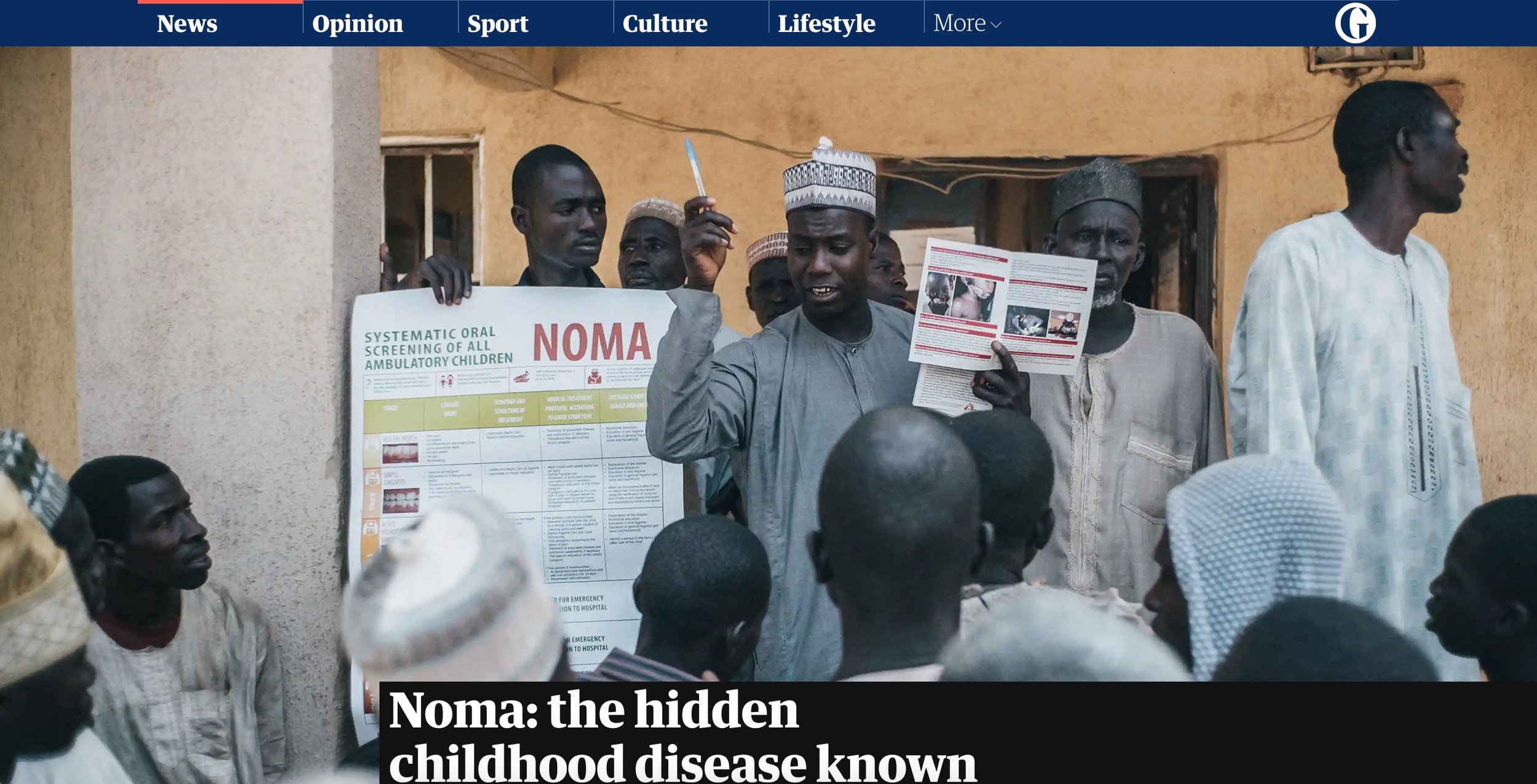
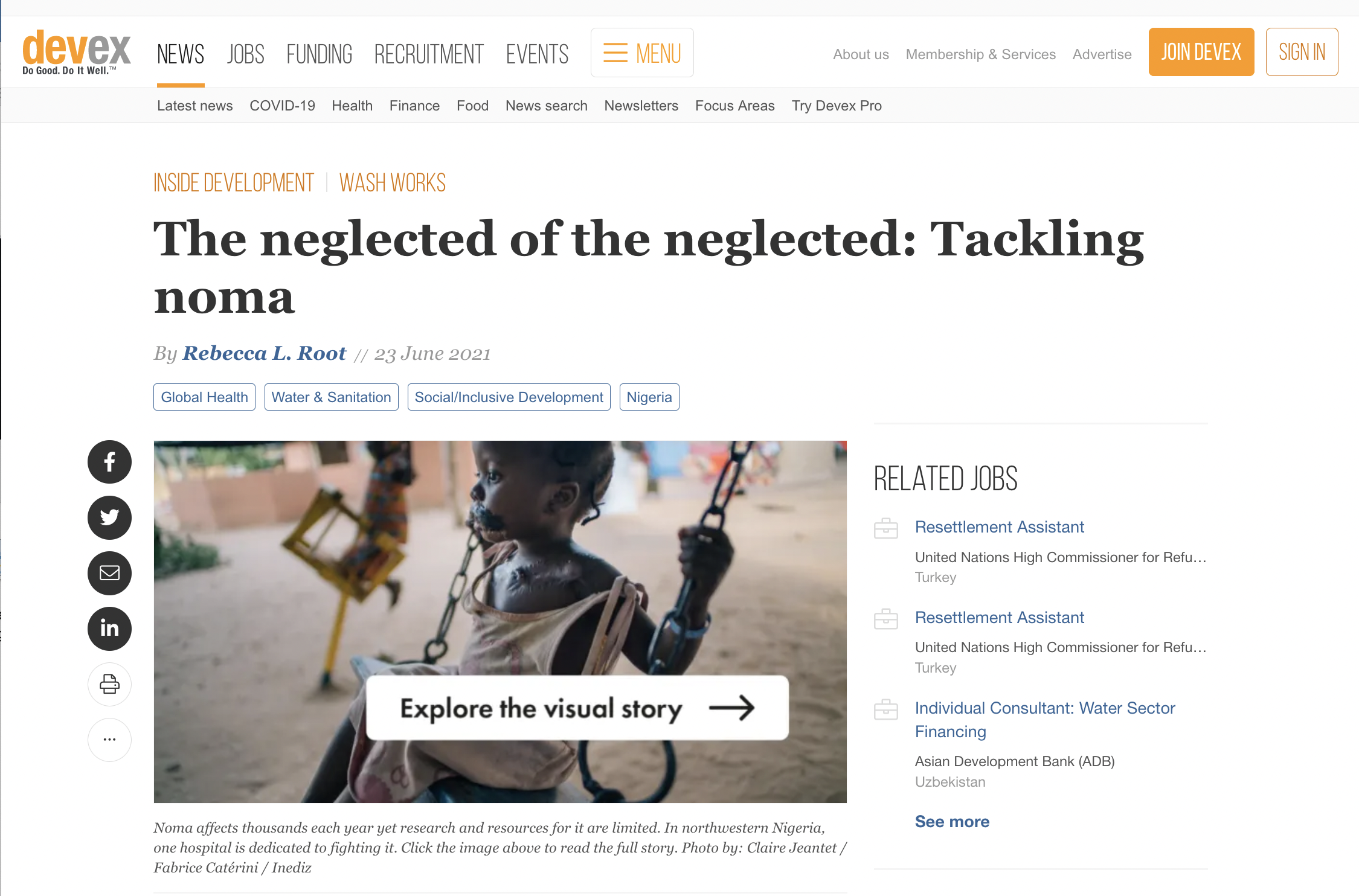
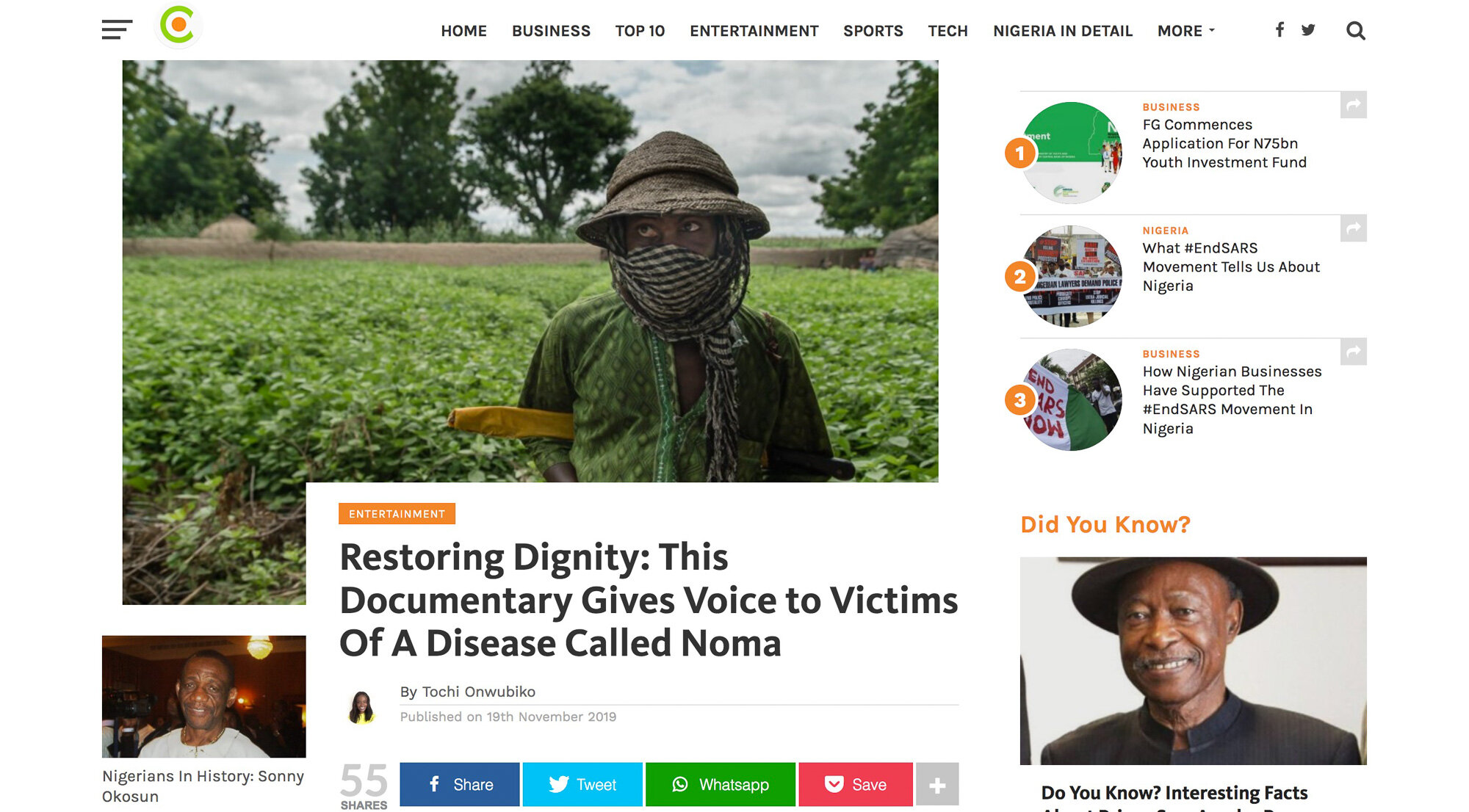
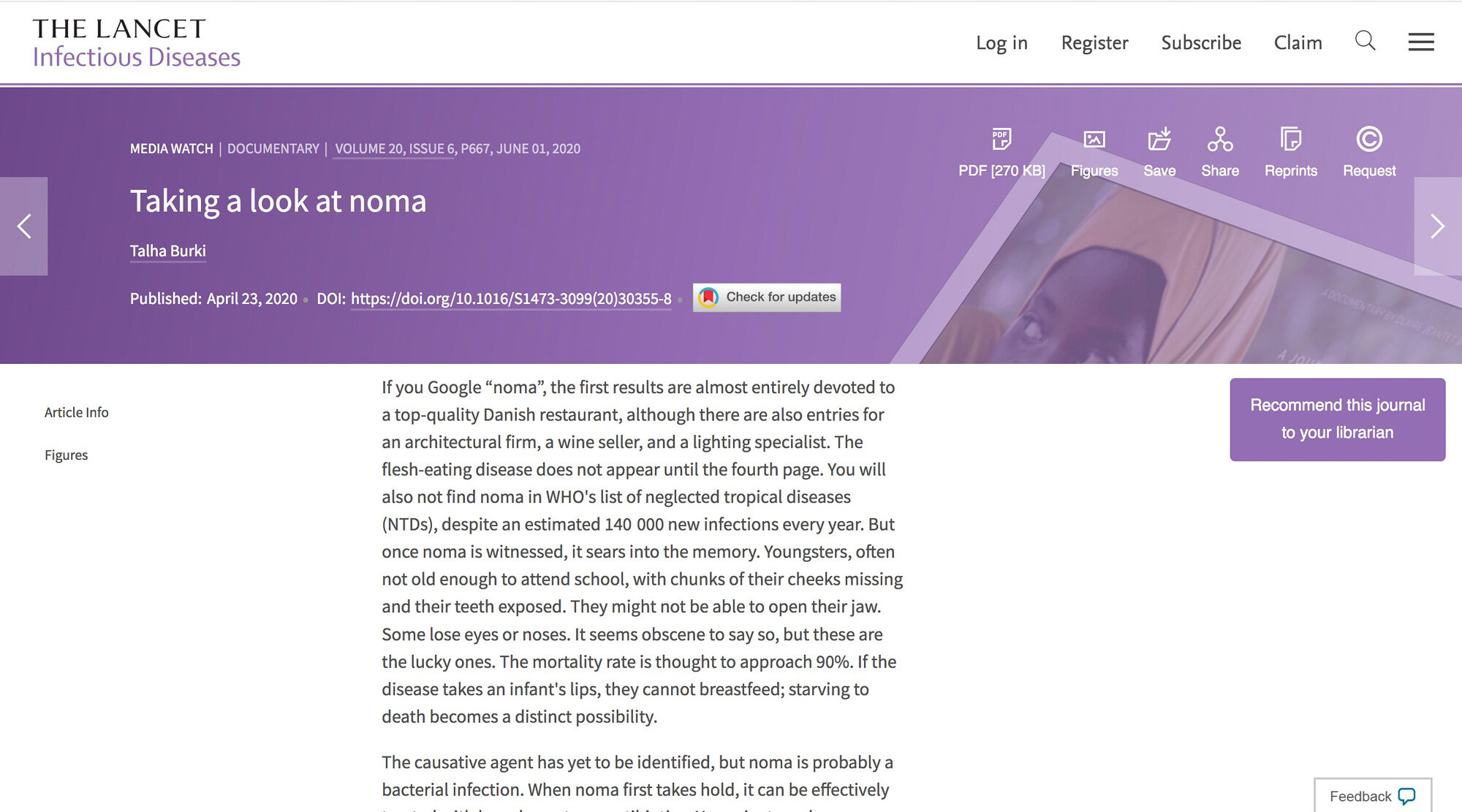
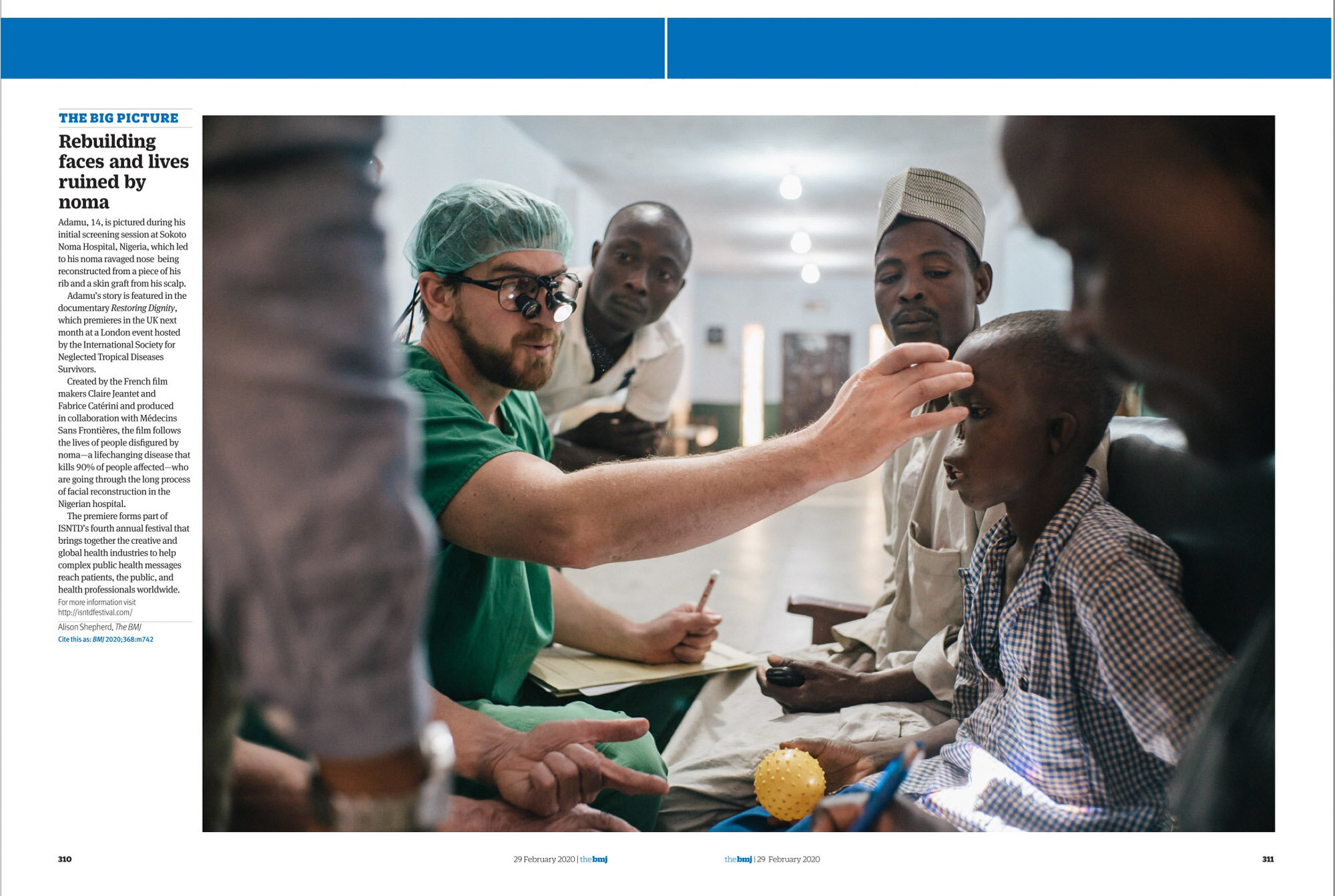
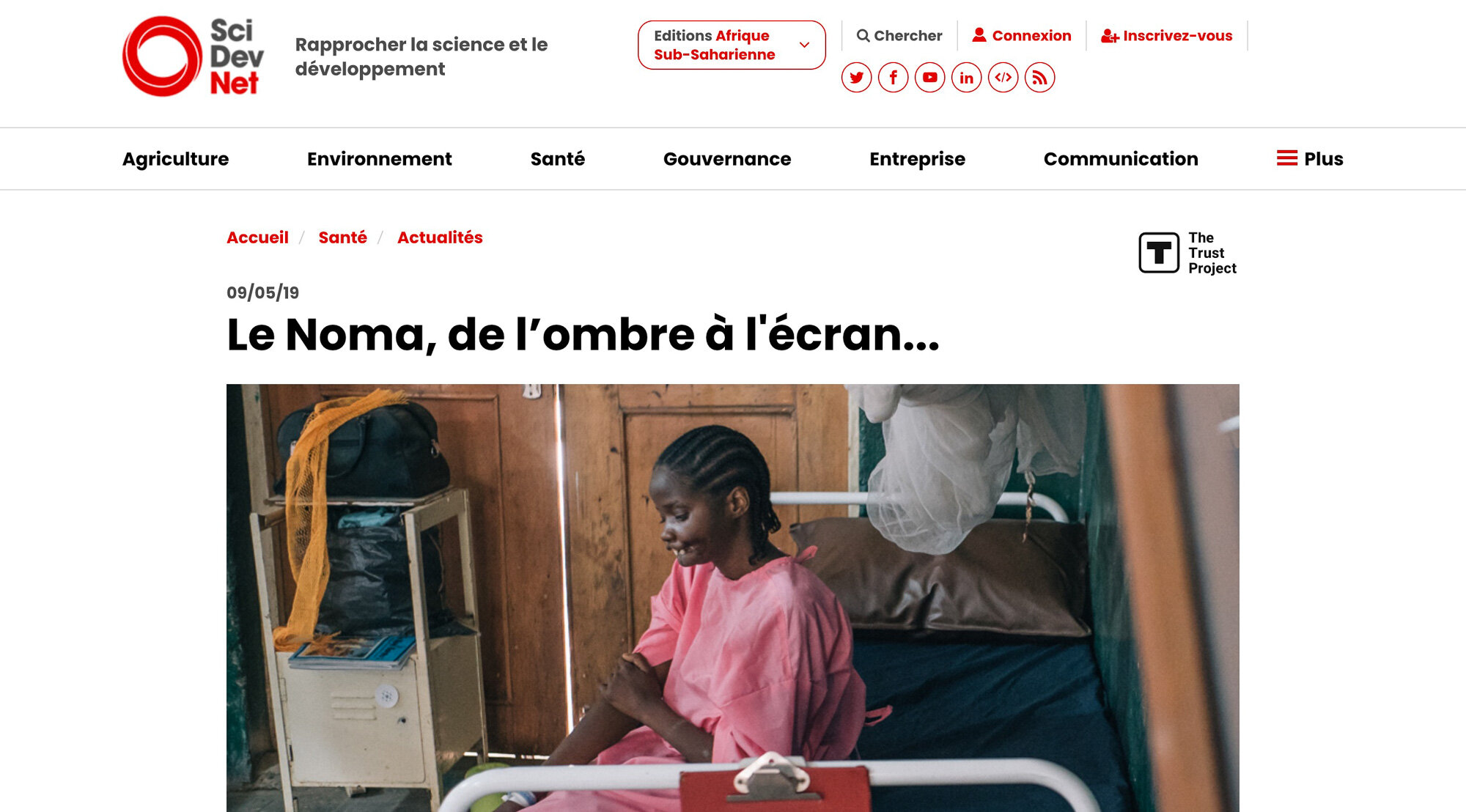
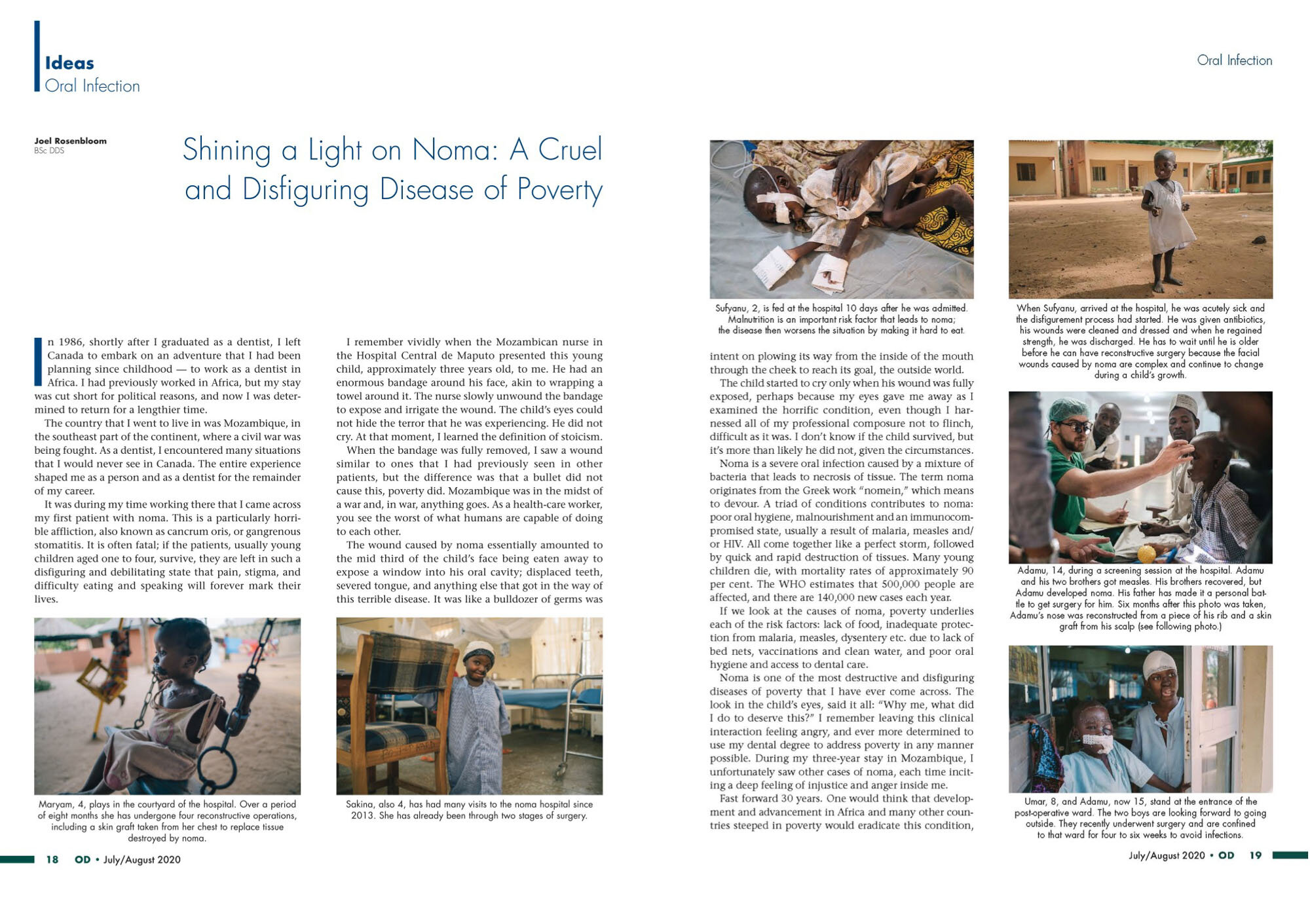
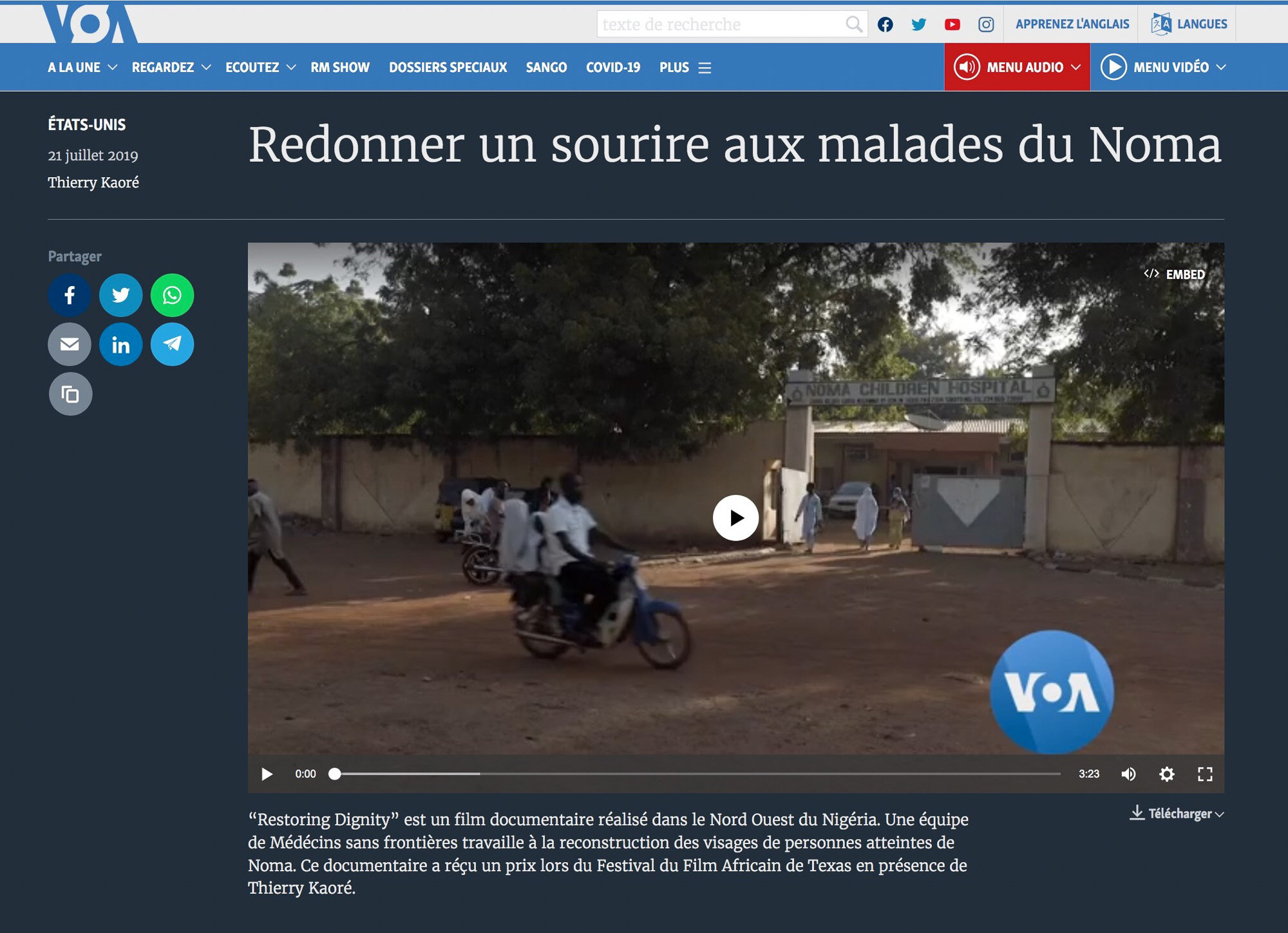
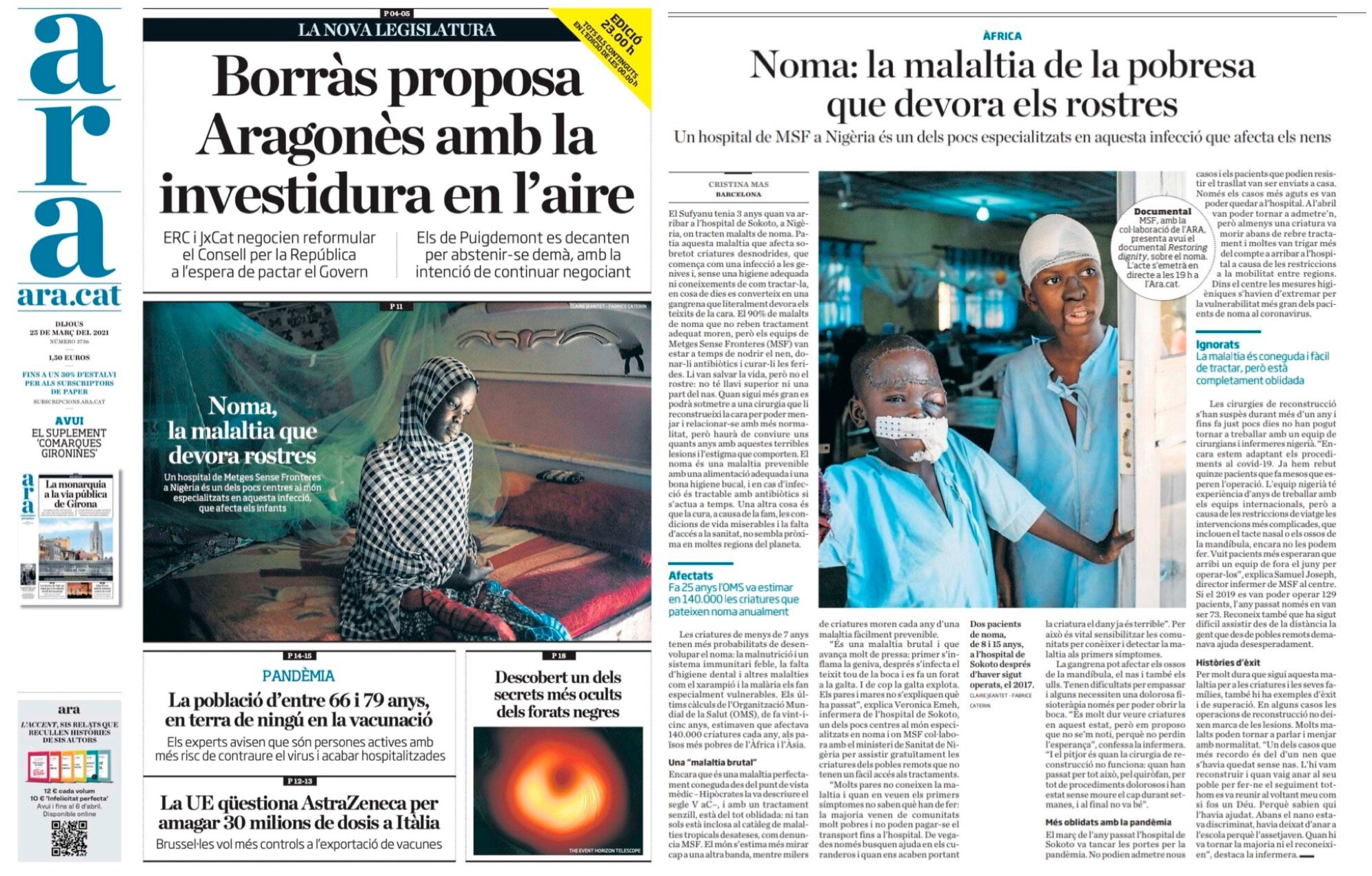
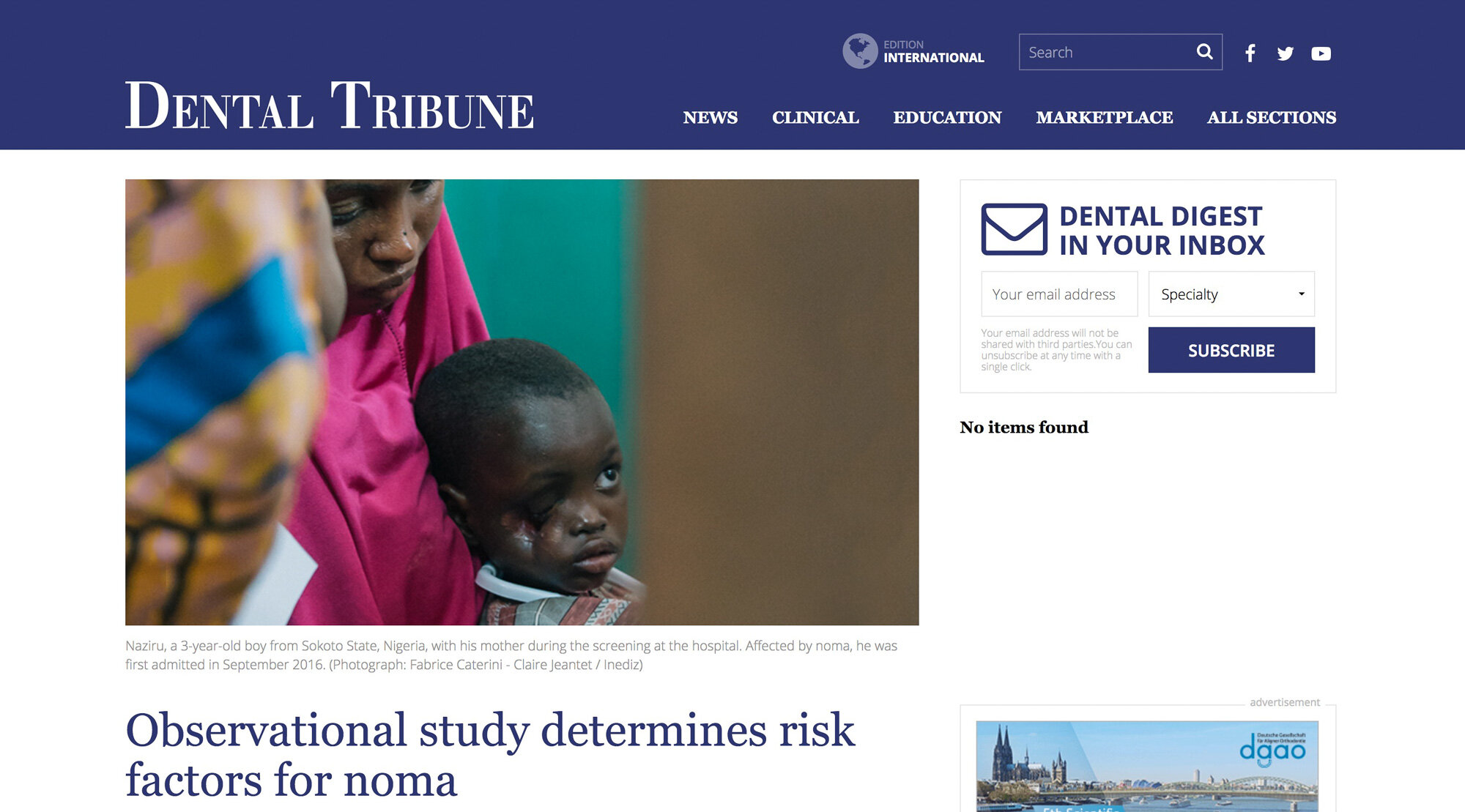
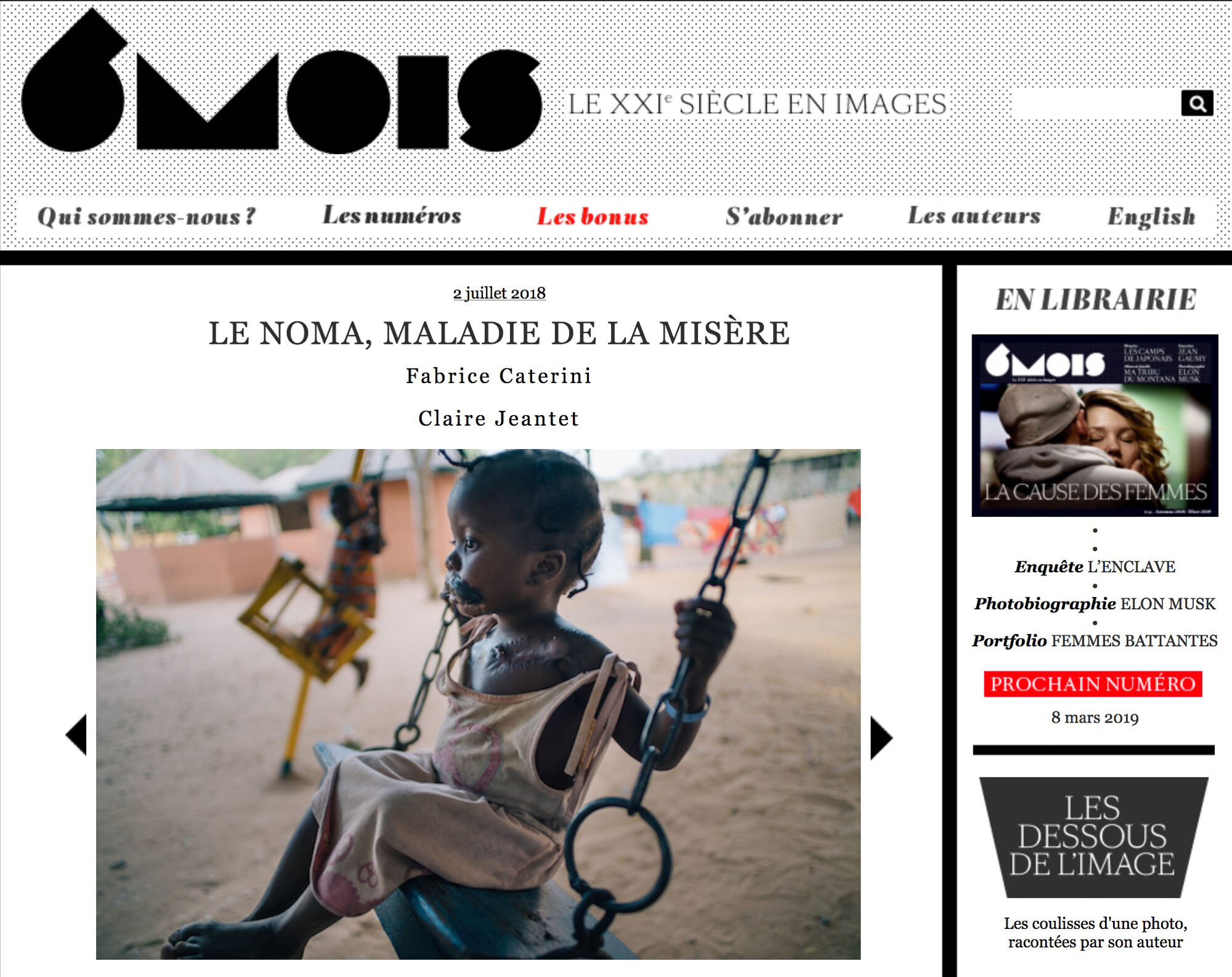
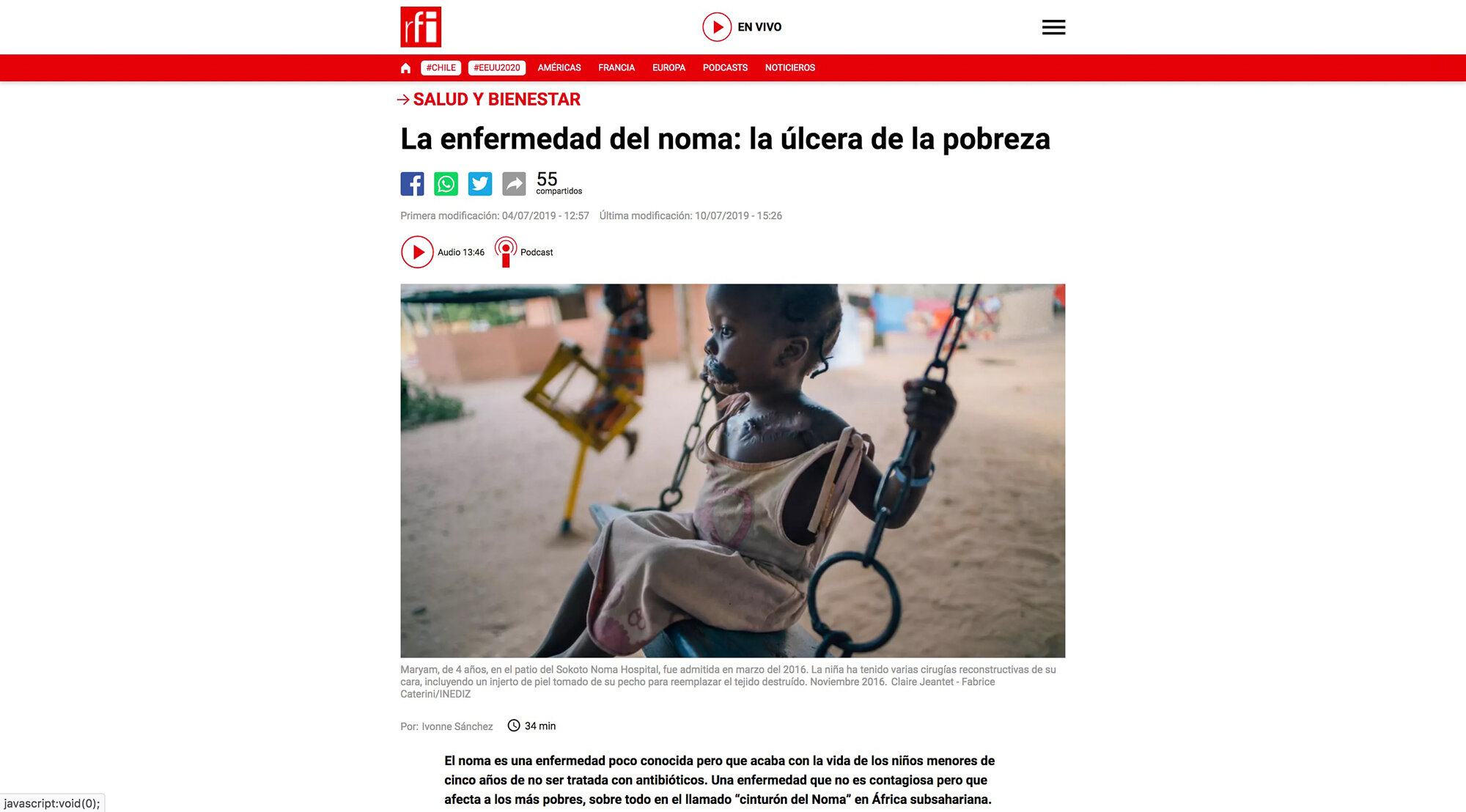
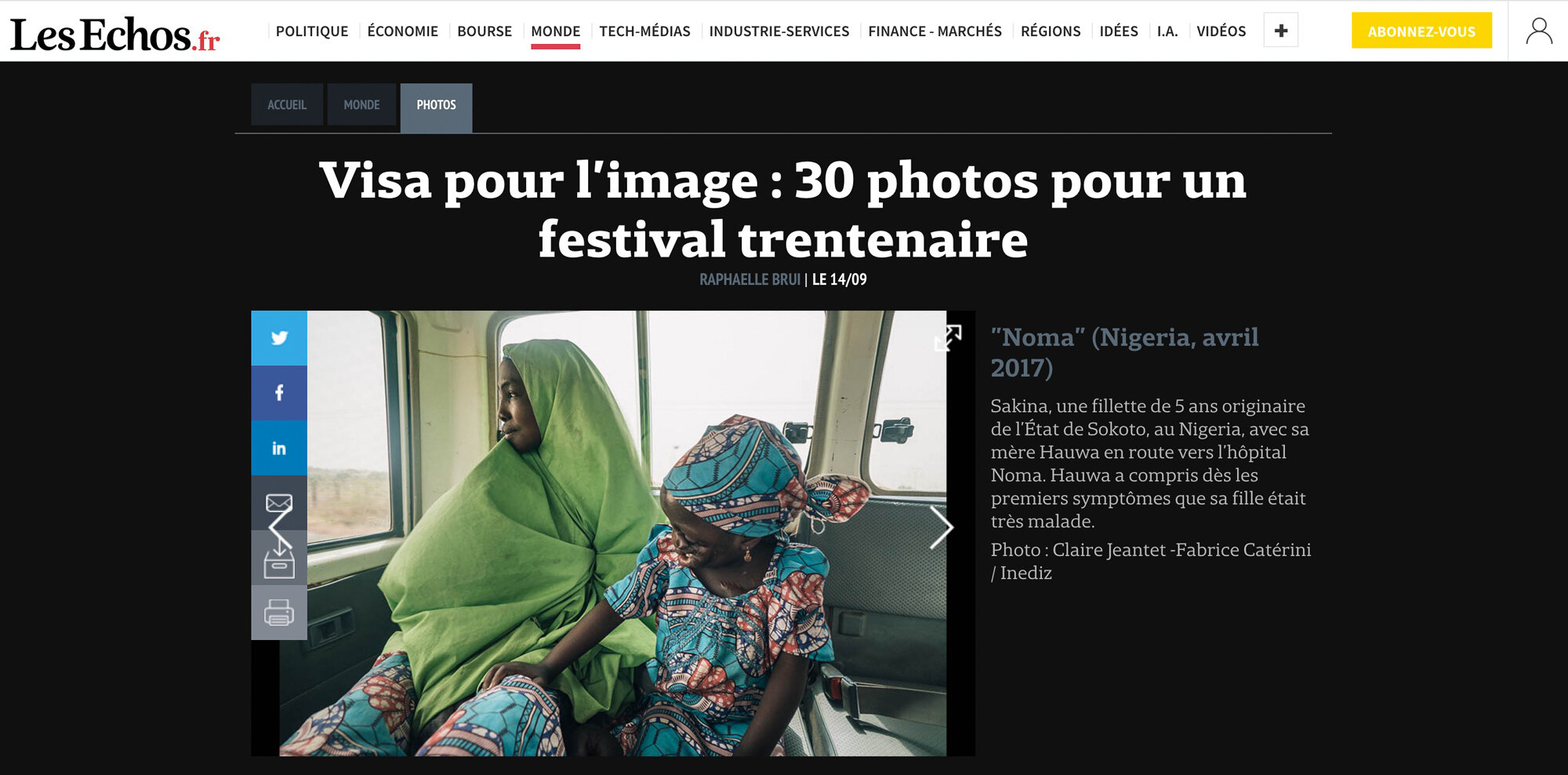
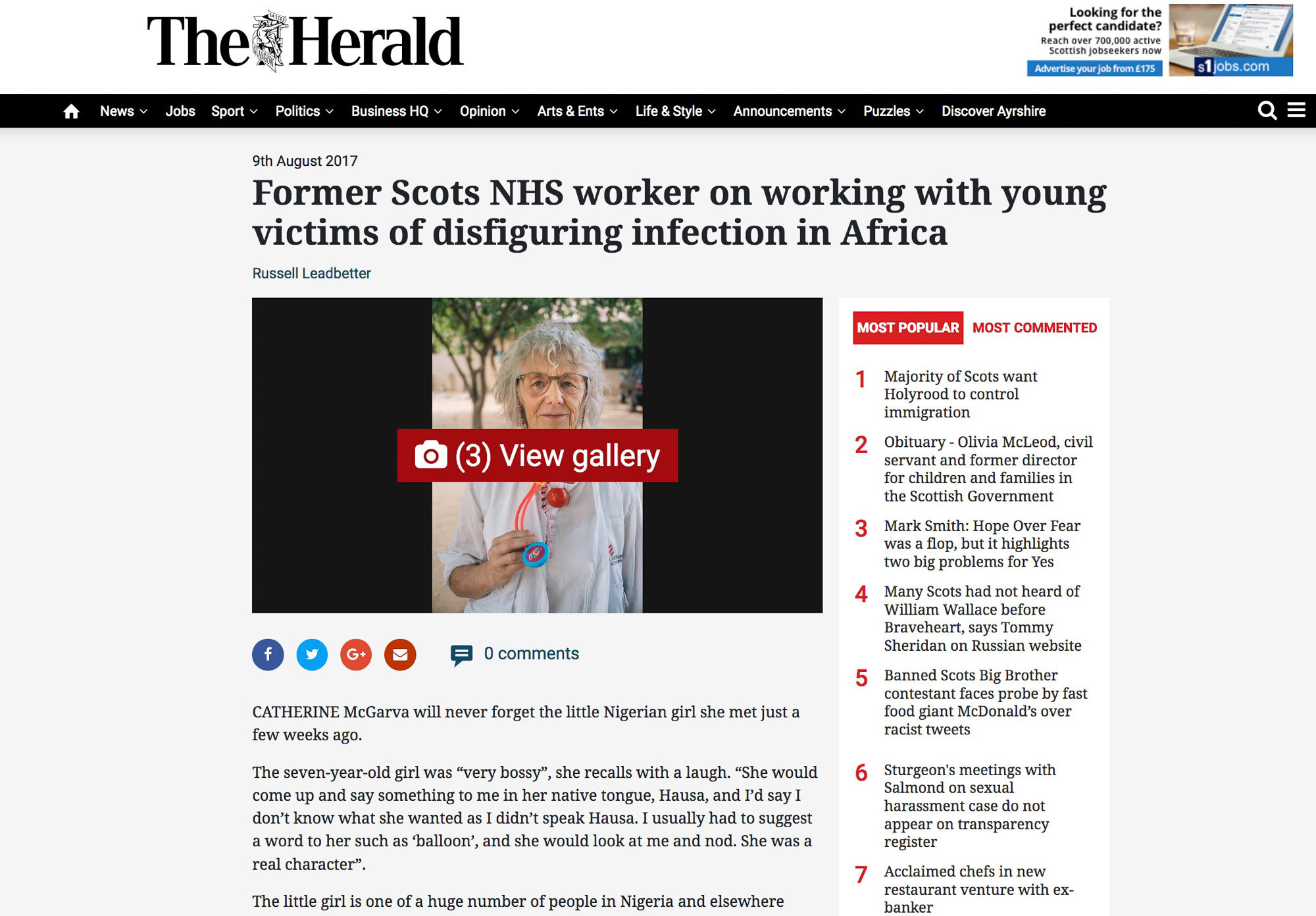
“The camerawork is sensitive, lingering on the ravages of noma when necessary,
but often shifting the focus to the uninjured side of the face.”
THE TEAM
Claire Jeantet & Fabrice Catérini - Directors
Award-winning documentary filmmakers, Claire (b.1985) and Fabrice (b. 1982) are passionate about creating content with meaning and depth. Focused on long-term visual work, they capture the daily lives of resilient people transformed by a key moment, give a voice to the ones who are neglected by mainstream news. Believing in the power of stories to change the world, they collaborate with media, humanitarian organizations and NGOs. Their main field of interest is social issues, with a focus on refugees, women’s rights and access to health care.
Louis-Antoine Fort - Sound & Original soundtrack
Louis-Antoine Fort (b.1980) is a musician, composer and sound designer. Graduated in contemporary music and classical percussions, he collaborates with videographers, theatre companies, dancers and plastic artists.
Nuno Pires - Editing
Nuno Pires (b.1982) is an editor, audiovisual manager and motion designer based in Paris, France. He has worked as a chief editor and multimedia manager on Yann Arthus Bertrand’s massive projects ‘7 billion others’ and ‘Human’.
Aisha Abubakar - Translation
Aisha Abubakar is a professional translator and interpreter based in Kaduna, Nigeria. Freelancer, she works for different organisations across the country and has been collaborating with Inediz during filming and post-production.
Inediz is a French multimedia agency created by Claire Jeantet and Fabrice Caterini in 2008. Dedicated to contemporary issues, always linked to current affairs, Inediz stands out for its humanistic and creative approach. Its specialties are photo essays, videos and interactive documentaries.
Médecins Sans Frontières / Doctors Without Borders (MSF) is an international, independent medical humanitarian organisation that delivers emergency medical aid to people affected by armed conflict, epidemics, natural disasters and exclusion from healthcare. MSF assists people based on need irrespective of race, religion, gender or political affiliation.
CONTACT
Connect on social media with #BeatNTDs
For international sales, TV inquiries, festival or screening inquiries, please contact: info@inediz.com
You can also visit Inediz website






